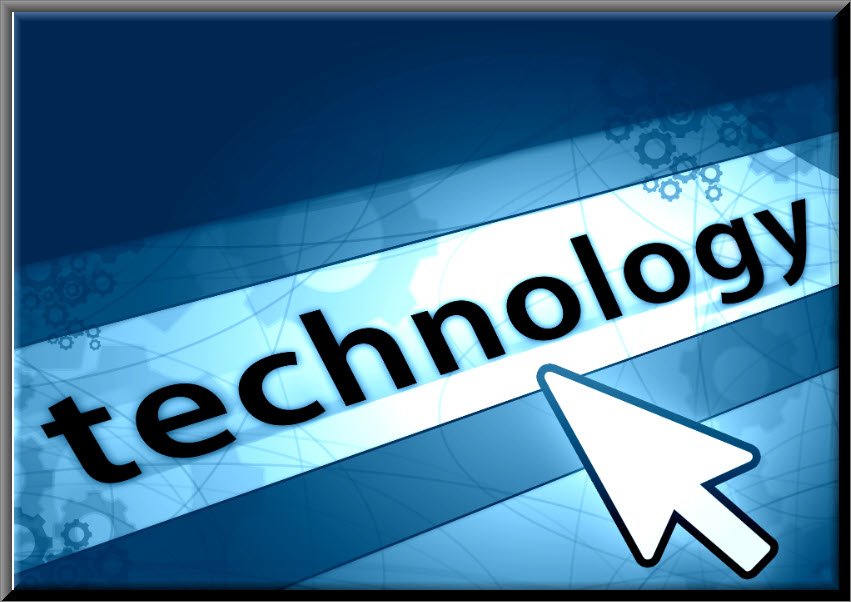Technology refers to the application of scientific knowledge, tools, and techniques

Technology refers to the application of scientific knowledge, tools, and techniques to solve problems, improve processes, and achieve goals. It encompasses a wide range of disciplines and innovations that have transformed virtually every aspect of human life, including communication, transportation, healthcare, education, entertainment, and business. Here are some key aspects and categories within the field of technology:

- Information Technology (IT): Information technology involves the use of computers, software, networks, and digital infrastructure to store, retrieve, process, and transmit data and information. This includes computer hardware (such as desktops, laptops, servers), software applications (such as operating systems, productivity software, databases), networking technologies (such as the internet, intranets, Wi-Fi), and cybersecurity measures.
- Communication Technology: Communication technology encompasses technologies and systems used for transmitting and exchanging information and messages between individuals, organizations, and devices. This includes telecommunications networks (such as landlines, mobile networks, satellite communications), internet-based communication tools (such as email, instant messaging, VoIP), social media platforms, and video conferencing systems.
- Digital Electronics: Digital electronics involves the design, development, and application of electronic circuits and systems that operate using digital signals and logic gates. This includes microprocessors, integrated circuits, digital sensors, memory chips, programmable logic controllers (PLCs), and digital displays.
- Automation and Robotics: Automation and robotics technologies involve the use of machines, sensors, and algorithms to perform tasks and processes with minimal human intervention. This includes industrial robots, automated manufacturing systems, robotic process automation (RPA), autonomous vehicles, drones, and smart home devices.
- Artificial Intelligence (AI) and Machine Learning: Artificial intelligence and machine learning technologies enable machines and computer systems to perform tasks that typically require human intelligence, such as learning, reasoning, problem-solving, and decision-making. This includes machine learning algorithms, neural networks, natural language processing (NLP), computer vision, and AI-powered applications and services.
- Internet of Things (IoT): The Internet of Things refers to the network of interconnected devices, sensors, and objects that collect and exchange data over the internet. This includes smart devices such as wearable gadgets, smart home appliances, connected vehicles, industrial sensors, and environmental monitoring systems.
- Cloud Computing: Cloud computing involves the delivery of computing services (such as storage, processing, and software) over the internet on a pay-as-you-go basis. This includes cloud storage services, cloud-based productivity tools, software as a service (SaaS), platform as a service (PaaS), and infrastructure as a service (IaaS).
- Biotechnology and Life Sciences: Biotechnology and life sciences encompass technologies and applications that involve the manipulation of biological systems, organisms, and processes for various purposes. This includes genetic engineering, biopharmaceuticals, medical diagnostics, bioinformatics, gene editing technologies (such as CRISPR), and regenerative medicine.
- Renewable Energy and Sustainable Technologies: Renewable energy and sustainable technologies involve innovations and solutions aimed at reducing environmental impact and promoting sustainability. This includes solar power, wind energy, hydroelectric power, geothermal energy, energy storage technologies, electric vehicles, green building materials, and waste management solutions.
- Emerging Technologies: Emerging technologies are new and evolving innovations that have the potential to significantly impact society and transform industries. This includes quantum computing, nanotechnology, 5G wireless technology, augmented reality (AR), virtual reality (VR), blockchain technology, and advanced materials science.

Technology plays a vital role in driving progress, innovation, and economic growth in the modern world. By leveraging the power of technology, individuals, organizations, and societies can address complex challenges, improve efficiency, enhance productivity, and create new opportunities for growth and development.


